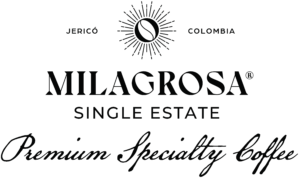Struggles of Colombian Coffee Farmers: A Look at Direct Trade vs. Sustainability Certifications
62-year-old Edgar Correa, a fourth-generation Colombian coffee farmer, is facing a significant challenge as his yields declined by 60% between 2020-2023. This decline in productivity is not unique to Correa, as many coffee farmers in Colombia are grappling with similar issues due to unpredictable weather patterns, rising costs of production, and an aging population of farmers.
In a recent visit to Jericó, a bustling town in Colombia, I had the opportunity to meet Correa and gain insight into the struggles faced by coffee farmers in the region. Despite his dedication to coffee farming, Correa shared his concerns about the financial viability of his farm and the limited benefits he receives from sustainability programs like Fairtrade.
The reality of the situation became clearer as we delved into the financial aspects of coffee farming in Colombia. The costs of production, including fertilizers, labor, and maintenance, often outweigh the income generated from selling coffee beans. This imbalance leaves many farmers in a constant state of financial struggle, with negative balance sheets becoming the norm.
While programs like Fairtrade aim to provide a safety net for farmers during market fluctuations, the distribution of premiums and the auditing process have their own challenges. Many farmers find themselves at a disadvantage within the current system, leading some to explore alternative options like direct trade.
Direct trade offers a promising solution for farmers like Correa, providing higher pay and more transparency in the supply chain. Companies like Campesino Coffee have embraced the direct trade model, offering farmers a fair price for their beans and investing in sustainable practices.
As the direct trade model gains momentum, more roasters are looking to source their coffee directly from farmers to ensure fair compensation and quality. This shift towards direct trade is not without its challenges, including the need for governing oversight and standardized certification to prevent exploitation and ensure scalability.
Ultimately, the choice between Fairtrade and direct trade comes down to what farmers believe is the most respectful way to reward their efforts. Both models have their merits and play a role in promoting trade justice and supporting farmers in their livelihoods.
In the end, it is essential for the coffee industry to come together to create solutions that benefit farmers and ensure a sustainable future for coffee production. By supporting initiatives that prioritize farmers’ well-being and empower them to make decisions for their families and communities, we can work towards a more equitable and thriving coffee industry.



:quality(85)/cloudfront-us-east-1.images.arcpublishing.com/infobae/4UP3FZXB7FF2LDXLK6WXUVPLSM.jpg?w=218&resize=218,150&ssl=1)
